
Research
Security News
Lazarus Strikes npm Again with New Wave of Malicious Packages
The Socket Research Team has discovered six new malicious npm packages linked to North Korea’s Lazarus Group, designed to steal credentials and deploy backdoors.
huggingface-visualblocks-nodes
Advanced tools
Visual blocks is an amazing tool from our friends at Google that allows you to easily create and experiment with machine learning pipelines using a visual interface. This repository contains the source code for custom components that allow you to use Hugging Face client and server models in your Visual Blocks pipelines. We've created a few nodes supporting different tasks and models following our Tasks definitions.
[!NOTE] Visual Blocks seems to be mostly working in Chrome. If you are having trouble with the interface, try using Chrome, and please submit an issue to the Visual Blocks team.
Important links:
To start playing with our custom components you need to Add a custom node to your Visual Blocks project. First you need to start a new project https://visualblocks.withgoogle.com/#/edit/new, then click on the "+" button in the bottom left corner to add a new node.
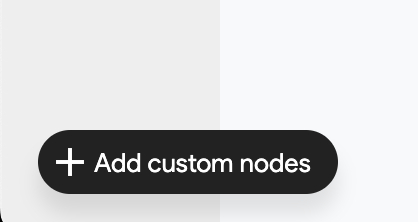
Then input the pre-bundled code from our npm package. You can do this by pasting the following link into the input field and clicking "Submit":
https://cdn.jsdelivr.net/npm/huggingface-visualblocks-nodes@latest
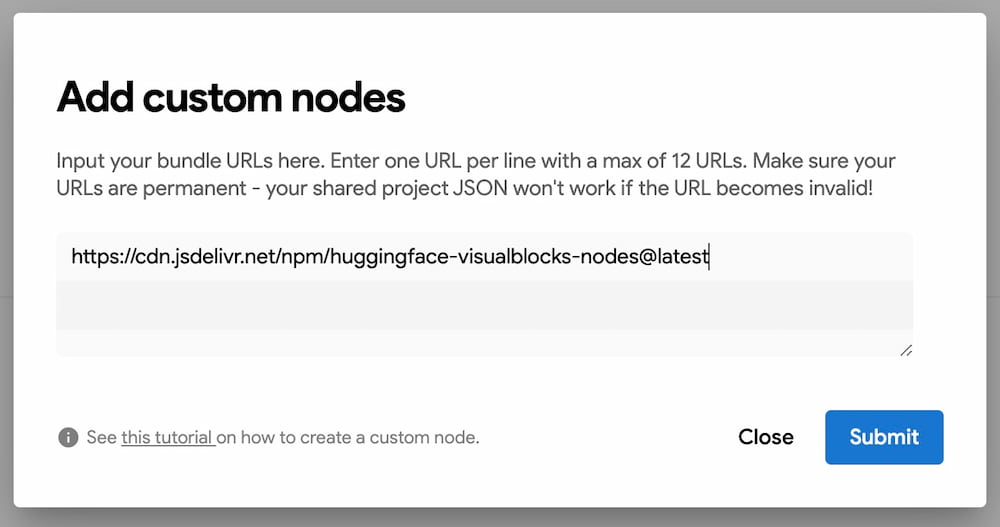
Then you will be able to see three Hugging Face Collections: Client, Server and Common.
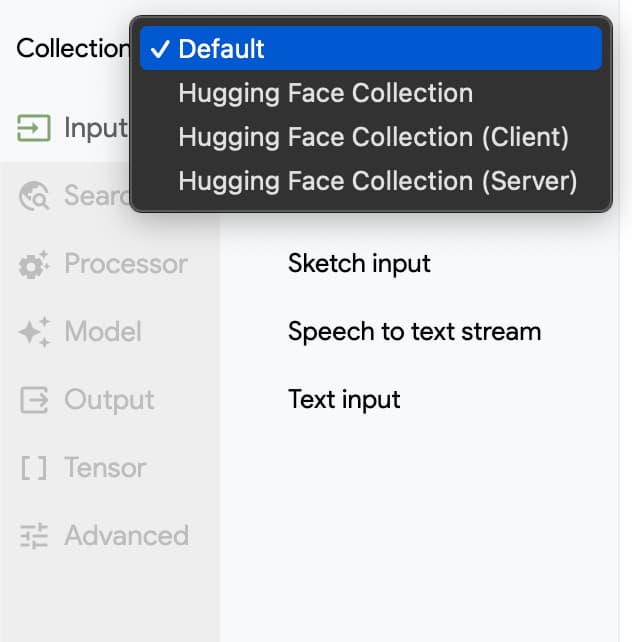
Client nodes are nodes running tranformers pipelines on the client side using Transformers.js. All Client nodes have WASM and WebGPU (experimental) backend support, and you can find web-compatible models by visiting https://huggingface.co/models?library=transformers.js.
[!NOTE] WebGPU support in transformers.js is still experimental and may not work on all devices. Not all models are supported by WebGPU backend yet.

More info:

Token Classification Node Example
More info:
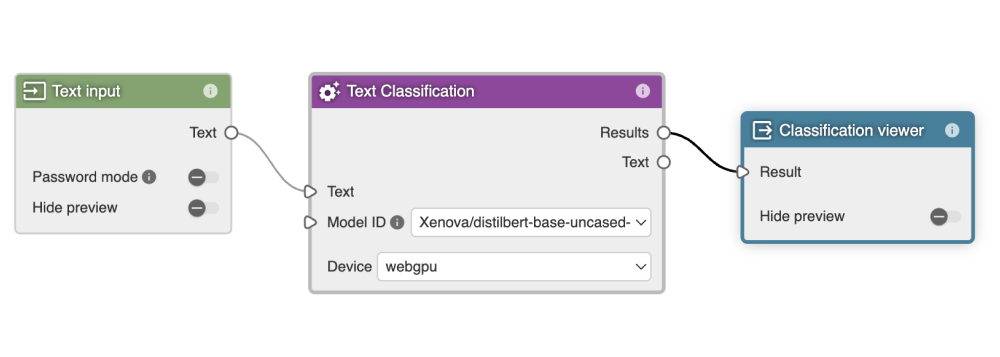
Text Classification Node Example
More info:
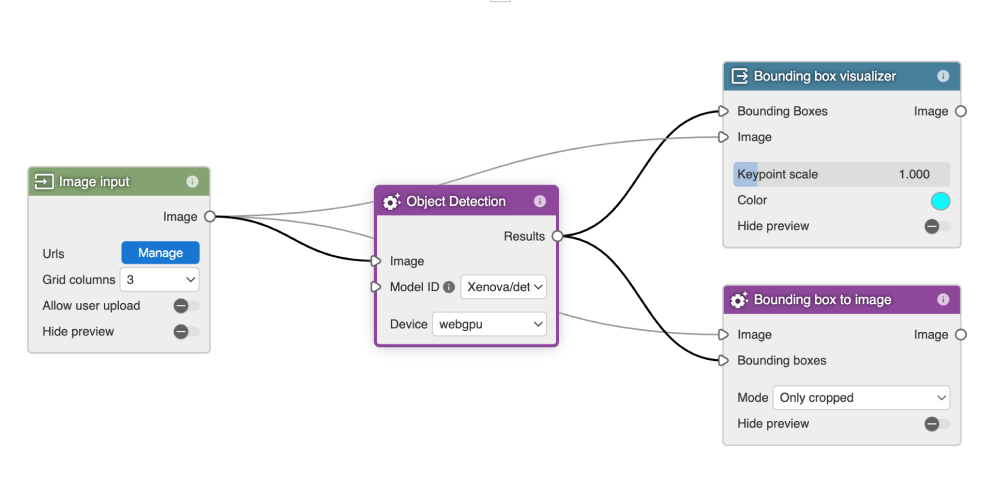
More info:
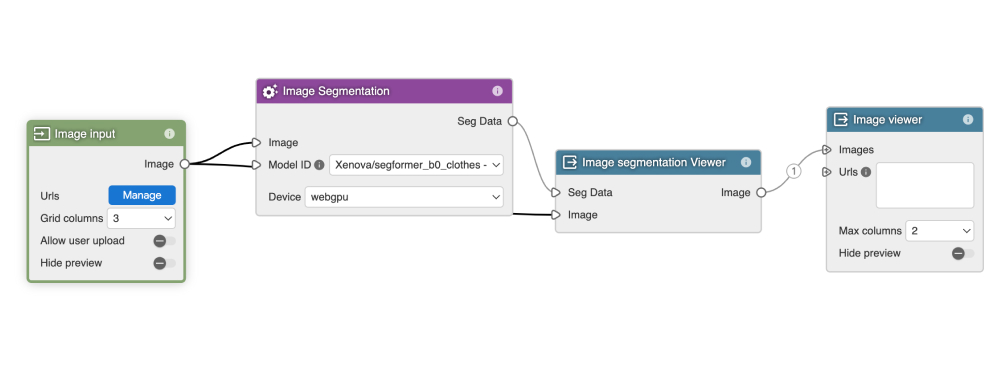
Image Segmentation Node Example
More info:

Image Classification Node Example
More info:

More info:
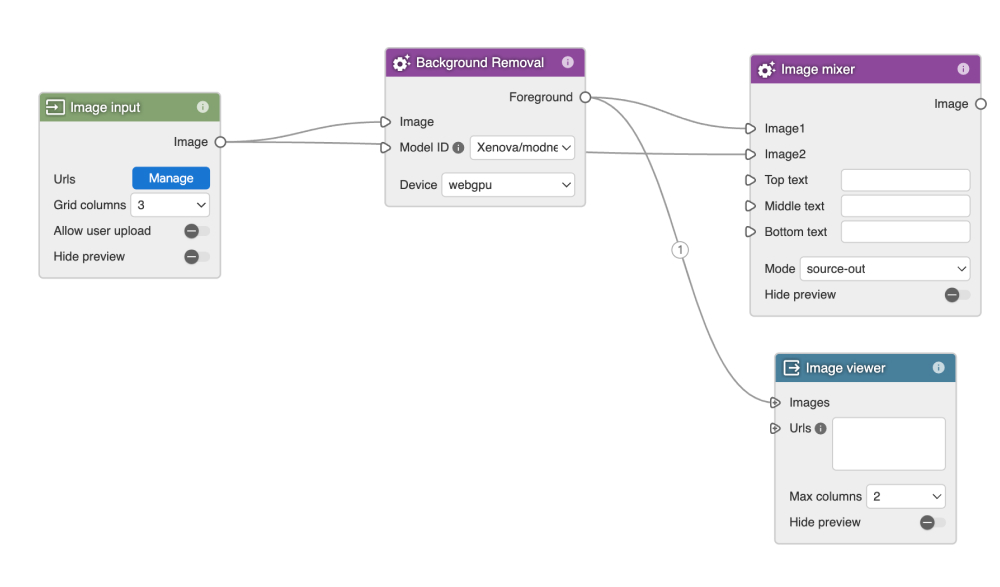
Background Removal Node Example
Server nodes are nodes running Transformers pipeline tasks using the Hugging Face Serverless API. For a few selected LLM models, it's running using our hosted Text Generation Inference, our fast, optimized inference for LLMs.
[!NOTE] You can use the Hugging Face Serverless API for free with limited usage, after which you'll be rate limited. If you need more usage, you can create an account at https://huggingface.co/join and get an API token at https://huggingface.co/settings/tokens or log in using the Hugging Face Login node.
For server nodes you have the option to Login using your Hugging Face account to get more usage and access to private models. Using Hugging Face Hub Login
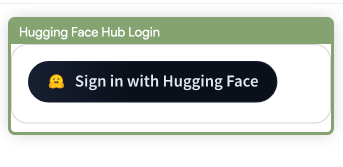

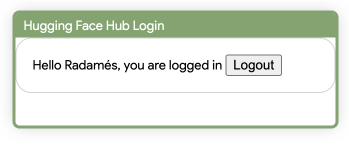
If successful, you can obtain your Apikey directly from the Hugging Face Hub Login node.

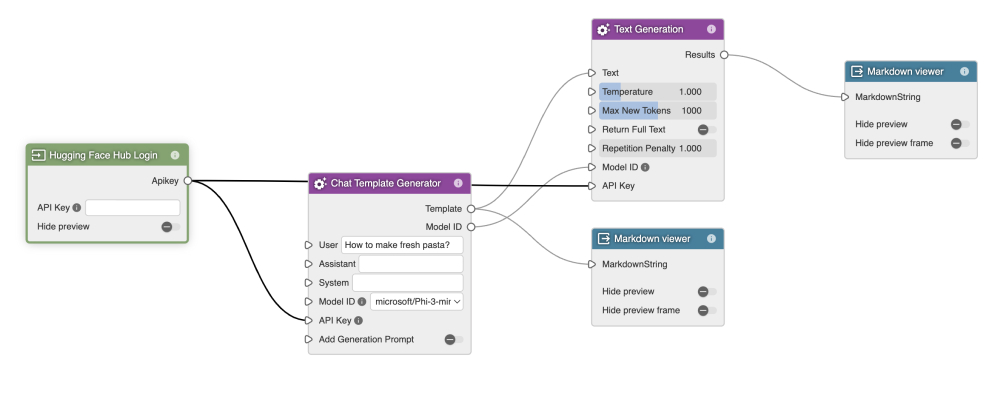
Chat Template Text Generation Node Example
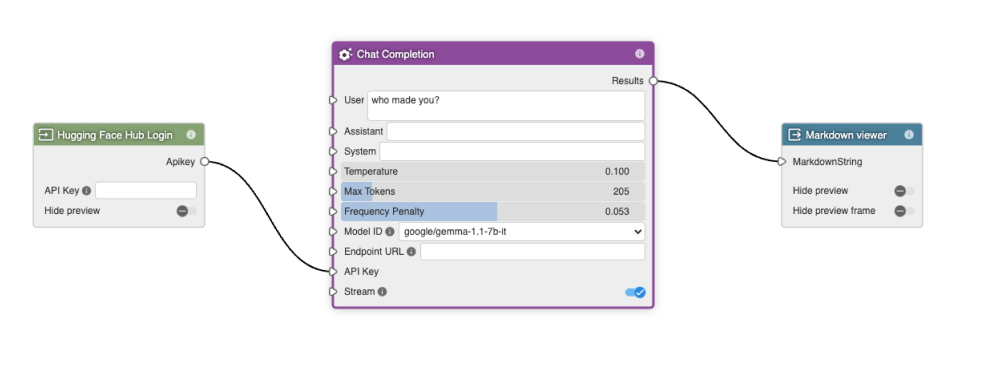
More info:
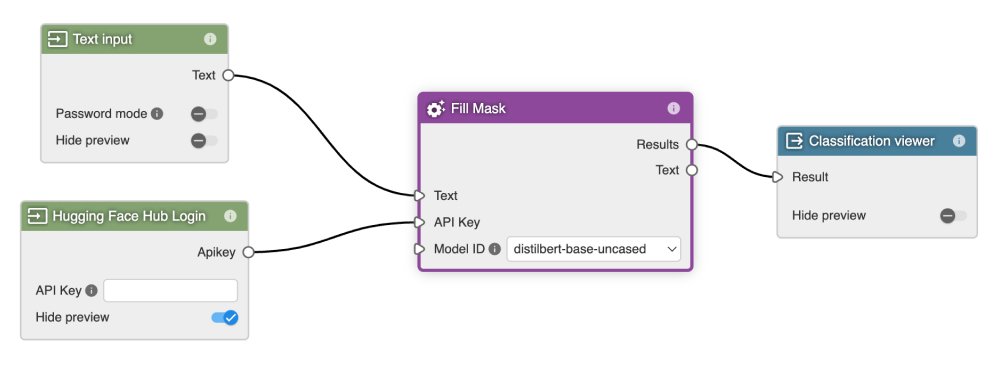
More info:
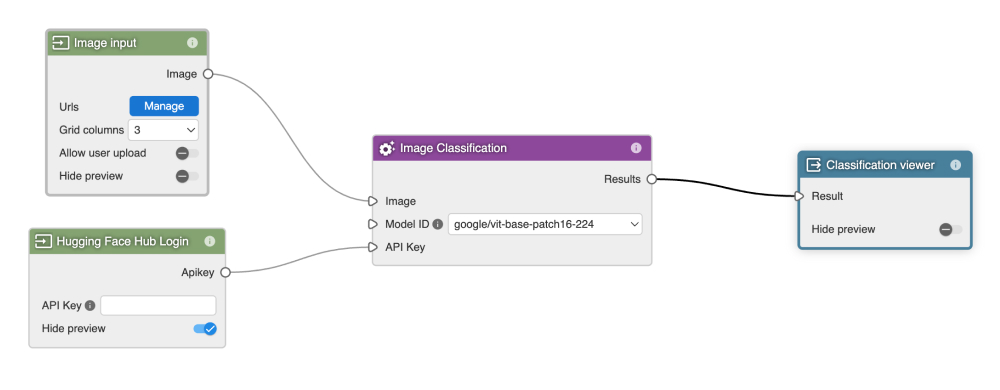
Image Classification Node Example
More info:

More info:

Text Classification Node Example
More info:

More info:

More info:
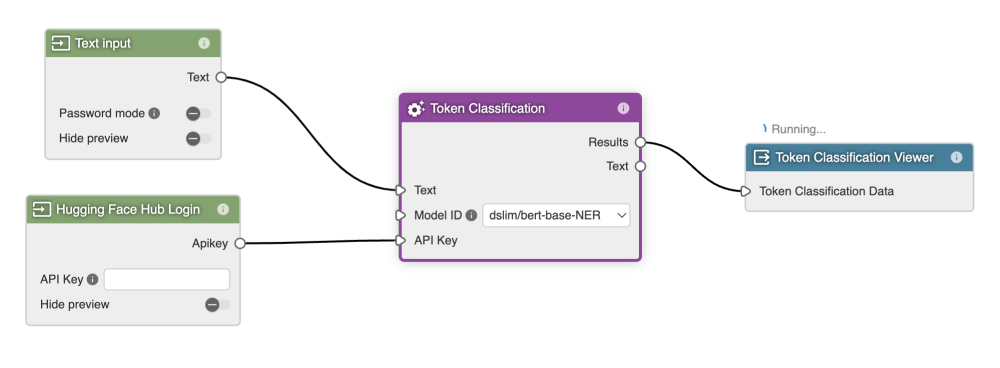
Token Classification Node Example
More info:
Clone the repository
git clone https://github.com/huggingface/visual-blocks-custom-components.git
cd visual-blocks-custom-components
Install the dependencies
npm i
Run the development server
npm run dev
Visit Google's staging server
Click the + in the bottom left corner to add the custom nodes.
Paste in the link to the script (e.g., http://localhost:8080/index.js) and click "Submit".
FAQs
Custom Hugging Face components for Visual Blocks
The npm package huggingface-visualblocks-nodes receives a total of 0 weekly downloads. As such, huggingface-visualblocks-nodes popularity was classified as not popular.
We found that huggingface-visualblocks-nodes demonstrated a healthy version release cadence and project activity because the last version was released less than a year ago. It has 1 open source maintainer collaborating on the project.
Did you know?

Socket for GitHub automatically highlights issues in each pull request and monitors the health of all your open source dependencies. Discover the contents of your packages and block harmful activity before you install or update your dependencies.

Research
Security News
The Socket Research Team has discovered six new malicious npm packages linked to North Korea’s Lazarus Group, designed to steal credentials and deploy backdoors.

Security News
Socket CEO Feross Aboukhadijeh discusses the open web, open source security, and how Socket tackles software supply chain attacks on The Pair Program podcast.

Security News
Opengrep continues building momentum with the alpha release of its Playground tool, demonstrating the project's rapid evolution just two months after its initial launch.